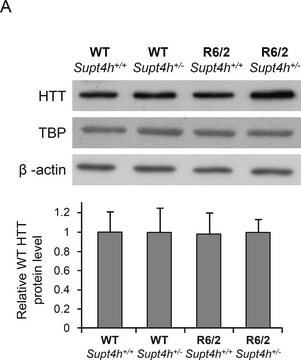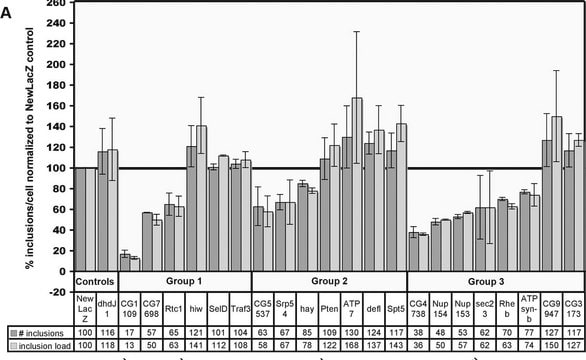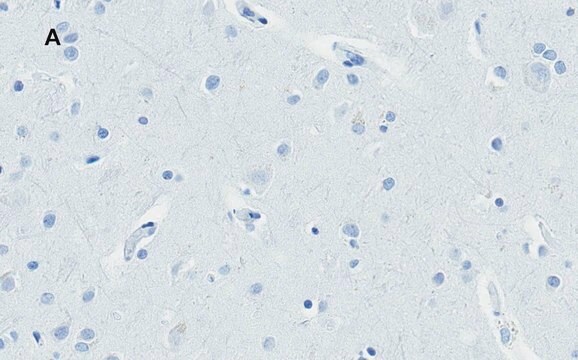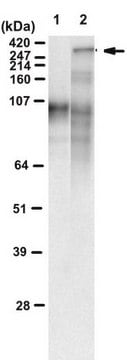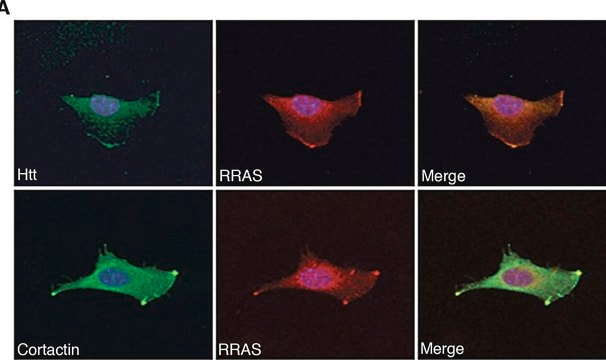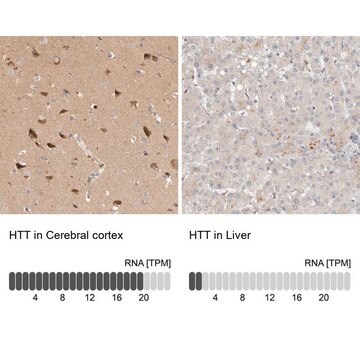おすすめの製品
由来生物
mouse
品質水準
結合体
unconjugated
抗体製品の状態
purified from hybridoma cell culture
抗体製品タイプ
primary antibodies
クローン
3B5H10, monoclonal
形状
buffered aqueous solution
化学種の反応性
human
包装
antibody small pack of 25 μL
濃度
~2 mg/mL
テクニック
immunocytochemistry: suitable
immunoprecipitation (IP): suitable
western blot: 1-2 μg/mL using extract of HEK-293T cells transfected with an N-terminal 171 amino acid fragment of human Huntingtin with a 68 glutamine stretch
アイソタイプ
IgG1
UniProtアクセッション番号
輸送温度
dry ice
保管温度
−20°C
ターゲットの翻訳後修飾
unmodified
遺伝子情報
human ... HTT(3064)
詳細
免疫原
アプリケーション
Western Blotting (1 paper)
物理的形状
法的情報
免責事項
適切な製品が見つかりませんか。
製品選択ツール.をお試しください
保管分類コード
12 - Non Combustible Liquids
WGK
WGK 1
引火点(°F)
Not applicable
引火点(℃)
Not applicable
適用法令
試験研究用途を考慮した関連法令を主に挙げております。化学物質以外については、一部の情報のみ提供しています。 製品を安全かつ合法的に使用することは、使用者の義務です。最新情報により修正される場合があります。WEBの反映には時間を要することがあるため、適宜SDSをご参照ください。
Jan Code
P1874-BULK:
P1874-100UL:
P1874-25UL:
P1874-VAR:
P1874-200UL:
試験成績書(COA)
製品のロット番号・バッチ番号を入力して、試験成績書(COA) を検索できます。ロット番号・バッチ番号は、製品ラベルに「Lot」または「Batch」に続いて記載されています。
ライフサイエンス、有機合成、材料科学、クロマトグラフィー、分析など、あらゆる分野の研究に経験のあるメンバーがおります。.
製品に関するお問い合わせはこちら(テクニカルサービス)
